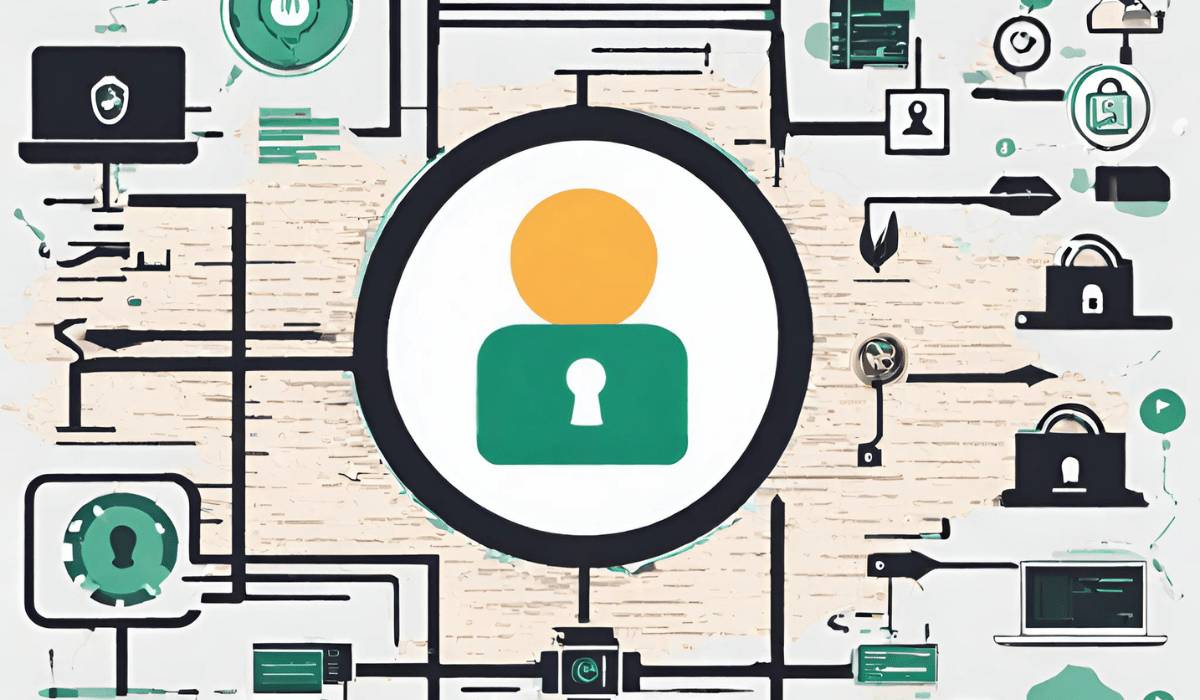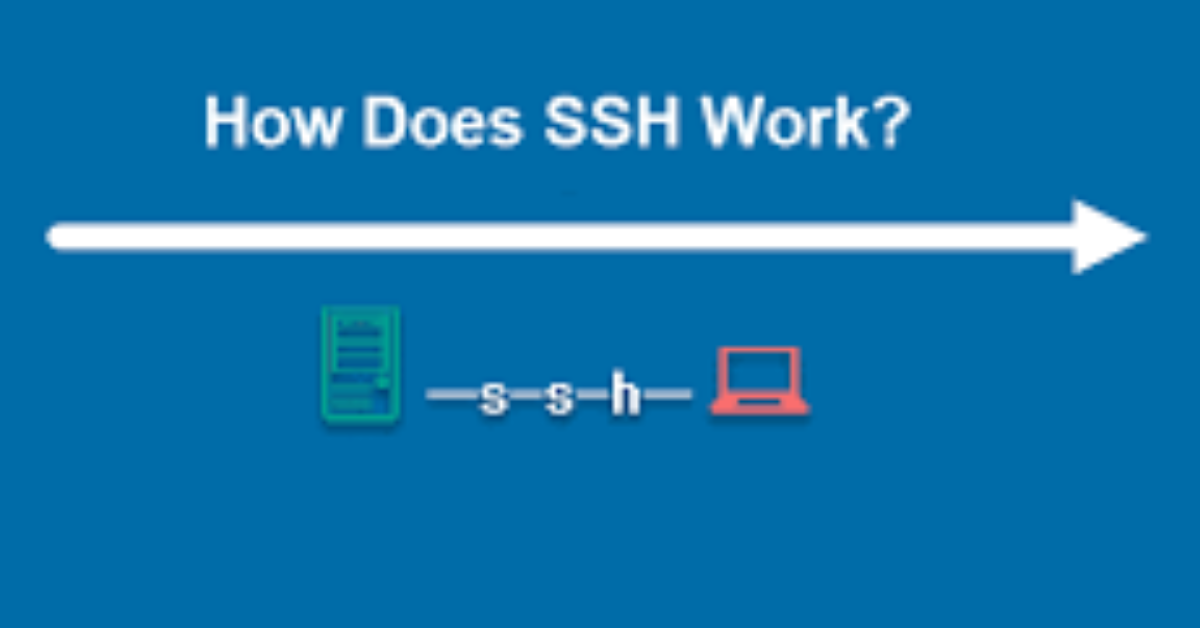Yes, SSH (Secure Shell) encrypts data. SSH uses encryption algorithms to protect client and server data transmission. It achieves this through a combination of symmetric and asymmetric encryption.
Secure Shell (SSH) is a popular, secure remote login and file transfer protocol over an unsecured network. This article provides an overview of SSH security, answering the question of whether SSH encrypts data or not. We will explore how SSH works, the role of encryption in SSH, its security features, the process of SSH encryption, and common security concerns. By the end of this article, you will have a comprehensive understanding of the security aspects of SSH.
Understanding SSH: A Brief Introduction
To understand SSH security, it is important to have a basic understanding of what SSH is. SSH, also well known as Secure Socket Shell, is a cryptographic network protocol allowing users to log in to a remote computer securely. It provides strong authentication and encrypted communication between two computers over an insecure network like the Internet.
What is SSH?
SSH protocol allows secure remote login and data transfer between computers. It provides a secure shell, or command-line interface, for users to remotely access and manage a computer system. With SSH, users can securely execute commands, transfer files, and perform other administrative tasks on a remote computer.
When a user initiates an SSH connection, the client and server establish a secure encrypted connection using cryptographic algorithms. This ensures that any data transmitted between the client and server is protected from eavesdropping and tampering. SSH also provides strong authentication mechanisms, allowing the server to verify the client’s identity and vice versa.
One of the key features of SSH is its ability to create secure tunnels for forwarding network connections. This means a user can securely access services running on a remote server, even if those services are not directly accessible from the user’s local network. SSH can forward connections for protocols such as HTTP, FTP, and VNC, providing secure access to remote resources.
The History of SSH
SSH was created in 1995 as a secure alternative to Telnet and other remote login protocols that lacked sufficient security measures.. It was designed to address the security vulnerabilities present in these protocols and provide a more secure alternative. SSH was created by Tatu Ylönen, a Finnish computer scientist, and has since become the de facto standard for secure remote administration.
Before the advent of SSH, remote login protocols like Telnet transmitted data in plain text, making them vulnerable to interception and unauthorized access. SSH introduced encryption and authentication mechanisms to address these security concerns, making it a much safer option for remote administration.
Over the years, SSH has evolved and gained widespread adoption. It has become an essential tool for system administrators, developers, and security professionals, enabling secure remote access to servers and facilitating secure file transfers. The protocol has undergone several revisions, with SSH-2 being today’s most widely used version.
In addition to its use in remote administration, SSH has also found applications in other areas. It is commonly used for secure file transfers, allowing users to transfer files between systems using the SSH File Transfer Protocol (SFTP). SSH is also used for secure tunneling, enabling users to create encrypted connections to access remote network resources.
Overall, SSH has revolutionized how remote administration and secure communication are conducted. Its robust security features, ease of use, and widespread support make it an indispensable tool in network security.
The Role of Encryption in SSH

Encryption is a crucial aspect of SSH that ensures the confidentiality and integrity of data during transmission. It is the process of converting plain text into ciphertext using cryptographic algorithms.
SSH (Secure Shell) is widely recognized as a reliable and secure network communication protocol. It provides a secure channel for remote access and allows users to execute commands and transfer files between a client and a server. At the heart of this security lies encryption.
How Does SSH Use Encryption?

SSH uses encryption to protect privacy. SSH encrypts and ensures data integrity between the client and the server. When a user establishes a connection to an SSH server, the data transmitted between them is encrypted and protected from unauthorized access. This algorithm is used to establish a secure and encrypted channel for communication.
Once the encryption algorithm is agreed upon, SSH employs a combination of symmetric and asymmetric encryption to secure the data. Symmetric encryption encrypts the transmitted data, such as AES (Advanced Encryption Standard) and 3DES (Triple Data Encryption Standard). Asymmetric encryption, such as RSA (Rivest-Shamir-Adleman), is used for key exchange and authentication.
The process starts with the client and server exchanging their public keys. The client creates a session key for symmetric encryption and then encrypts it using the public key of the server. Upon receiving the encrypted session key, the server decrypts it using its private key. This allows both the client and server to derive the same session key without exposing it to potential eavesdroppers.
After the session key is established, it is used to encrypt and decrypt the data exchanged between the client and server. This guarantees that if someone intercepts the data, they will be unable to understand it without the session key.
Types of Encryption Used in SSH
SSH supports various encryption algorithms, including symmetric and asymmetric encryption. The most commonly used encryption algorithms in SSH are AES (Advanced Encryption Standard), 3DES (Triple Data Encryption Standard), and RSA (Rivest-Shamir-Adleman).
AES, widely regarded as one of the most secure symmetric encryption algorithms, provides strong encryption for data confidentiality. It supports key sizes of 128, 192, and 256 bits, offering different levels of security. Using AES in SSH ensures that the data transmitted between the client and server remain confidential and protected from unauthorized access.
3DES, on the other hand, is an older symmetric encryption algorithm that provides a higher level of security than its predecessor, DES (Data Encryption Standard). It applies the DES algorithm three times to each data block, making it more resistant to brute-force attacks. While AES has largely replaced 3DES in modern SSH implementations, it is still supported for compatibility purposes.
RSA, an asymmetric encryption algorithm, is primarily used in SSH for key exchange and authentication. It relies on the mathematical properties of large prime numbers to encrypt and decrypt data. RSA is widely adopted and trusted for its security and versatility in various cryptographic applications.
Overall, using encryption in SSH plays a vital role in ensuring the confidentiality and integrity of data during transmission. By employing robust encryption algorithms like AES, 3DES, and RSA, SSH provides a secure and reliable means of remote access and data transfer.
The Security Features of SSH

SSH (Secure Shell) is a network protocol providing secure communication between clients and servers. It offers several security features contributing to its overall security, making it a reliable choice for remote access and file transfer.
One of the primary security aspects of SSH is its robust authentication mechanism. SSH employs public-key cryptography to authenticate both the client and the server. Each entity possesses a pair of keys, namely a private key and a public key. The client’s public key is stored on the server, while the server’s public key is stored on the client. During the connection establishment, the client and server exchange their respective public keys and utilize them to authenticate one another. This process ensures that only authorized users can access the server and verifies the authenticity of the server.
In addition to authentication, SSH employs integrity-checking mechanisms to ensure data remains unaltered during transmission. It uses cryptographic hashes, such as SHA-256 or SHA-3, to generate a unique hash value for each data block. This hash value is then sent along with the data. Upon receiving the data, the recipient recalculates and compares the hash value with the received one. If the values match, the data has not been tampered with. If the values don’t match, the data has been modified, and the connection may be compromised.
SSH also provides confidentiality by encrypting the data exchanged between the client and the server. It encrypts the data using symmetric encryption algorithms like AES or 3DES. The encryption keys are negotiated during the initial handshake process, ensuring that only the client and the server know the keys and can decrypt the data. This prevents eavesdropping and protects the privacy of the transmitted information.
Furthermore, SSH supports port forwarding, allowing secure communication between network segments. It enables users to securely access resources on a remote network by tunneling the traffic through an encrypted SSH connection. This feature is especially useful when accessing sensitive information or connecting to a remote server in a different network.
Overall, the security features of SSH, including strong authentication, integrity checking, data encryption, and port forwarding, make it a robust and secure protocol for remote access and file transfer. Its widespread adoption and continuous development ensure it remains reliable for secure communication in various environments.
The Process of SSH Encryption
SSH encryption involves key generation, exchange, and data transmission. These steps ensure the secure and confidential data transfer between the client and the server.
Key Generation and Exchange
SSH uses a public-key cryptography-based key exchange algorithm to generate secure and exchange encryption keys between the client and the server. This key exchange mechanism ensures that only authorized parties can decrypt the transmitted data.
Data Transmission and Encryption
Once the encryption keys are exchanged, SSH uses symmetric encryption to encrypt the data transmitted between the client and the server. Symmetric encryption is a fast and efficient method that uses the same key for encryption and decryption.
Common SSH Security Concerns
While SSH is widely considered a secure protocol, there are still some security concerns that users should be aware of. Understanding these concerns can help users take appropriate measures to enhance the security of their SSH connections.
Potential Vulnerabilities in SSH
Despite its security features, SSH is not immune to vulnerabilities. Common vulnerabilities include weak passwords, outdated encryption algorithms, and misconfigurations. It is essential to stay updated on the latest security practices and regularly patch and update SSH implementations to mitigate these risks.
Best Practices for SSH Security
To ensure the maximum security of SSH connections, it is important to follow best practices. These include using strong passwords or public-key authentication, turning off unused SSH services, regularly monitoring and logging SSH activity, and implementing firewall rules to restrict unauthorized access.
FAQs
Does SSH encrypt all data transmitted between the client and server?
SSH encrypts all data transmitted between the client and server, including commands, file transfers, and any other communication exchanged during the session.
Is SSH encryption secure enough to protect sensitive information?
Yes, SSH encryption is considered highly secure. It employs strong cryptographic algorithms and protocols, making it difficult for attackers to intercept and decipher the encrypted data.
Can SSH encryption be compromised or bypassed?
In general, SSH encryption is highly resistant to compromise. However, like any security measure, it is not entirely foolproof. Vulnerabilities can exist in specific implementations or configurations, so it’s important to keep SSH software updated and follow best practices for secure configuration.
Conclusion
In conclusion, SSH is a secure protocol that encrypts data during transmission, ensuring the confidentiality and integrity of the information exchanged between the client and the server. SSH provides a robust security framework for remote login and file transfers using encryption algorithms, strong authentication mechanisms, and integrity checking. However, it is crucial to remain vigilant and follow best practices to address potential security concerns and secure SSH implementations.
